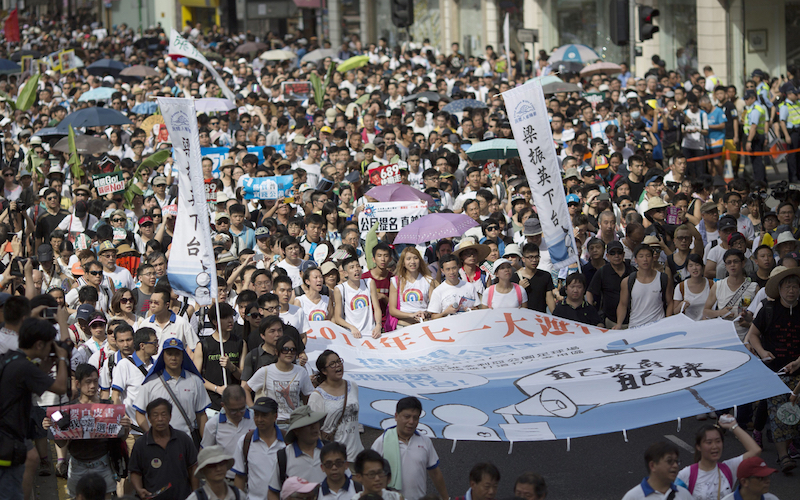
China Shuts down Democracy in Hong Kong
China recently announced that it would allow every Hong Kong citizen the chance to vote for the leader of their territory. However, the candidates would have to be approved by the Communist party in Beijing. The announcement of this “faux-democracy” created unrest across the city as thousands of protestor’s gathered outside the office of Chief Executive Leung Chun-ying. According to CNN, “Hong Kong’s first chief executive, Tung Chee-hwa, who stepped down early after massive protests against his leadership, this week called Beijing’s move towards democracy “real and substantive.”
Other pro-democracy groups are arranging protests and the group “Occupy Central with Love and Peace” (OCLP) have threatened to shut down the financial district if democracy is not upheld. The UK stepped up and launched an inquiry into the matter, which was met with resistance from Beijing. President Obama’s national security advisor, Susan Rice, is also planning a meeting with Chinese leaders next week to discuss this and other matters affecting US-China relations.
While resistance to the new legislation grows among Hong Kong citizens, the reality that nothing will change is also setting in. According to an article by Foreign Policy, “if current growth rates continue, the southern cities of Guangzhou and Shenzhen as well as the northern municipality of Tianjian will likely overtake Hong Kong in terms of GDP by 2017. Inland metropolises such as Chongqing, Chengdu, and Wuhan will catch up by 2022. In the ranking of Chinese cities by economics, Hong Kong may become a mere second tier city by 2022.”
This means that while Hong Kong considers itself an important part of the Chinese and Asian economy, the reality is that as time goes by it is slowly wielding less and less clout. In time, we may see it gain less and less support by western powers such as the US and the UK.
Over the course of these events it seems that the citizens of Hong Kong are becoming more divided in their opinions of China. On one side, many are supportive of China’s role in Hong Kong and have accepted the mainland as their higher governing body while others are pro-democracy activists who insist on a genuinely free democracy in Hong Kong. At the tip of this movement is the Occupy Central with Love and Peace group. They have been spearheading all the protests and actions to peacefully resist the mainland’s interference in the politics of Hong Kong. Yet, after recent events, it seems that the original threat of shutting down the city’s financial district is becoming less of an option. The group began with plans of activating 100,000 protestors, but it now seems that Beijing’s hardline approach drove many of those potential protestors away. Another contributing factor was the fact that the group didn’t want to actually cause any economic damage to the city. So for now it seems that China wont have to worry too much about the protests, but instead can focus on swaying politicians to adopt this new law.
According to the South China Morning Post, “The Hang Seng Index rallied yesterday to its highest point since 2008, climbing 2.32 per cent in intraday trading and breaking the 25,000-point mark on positive economic data and hints that the central government could further promote lending to the property sector.” This was announced as the news of the failed occupy movement sets in, easing investor’s minds about market stability.


